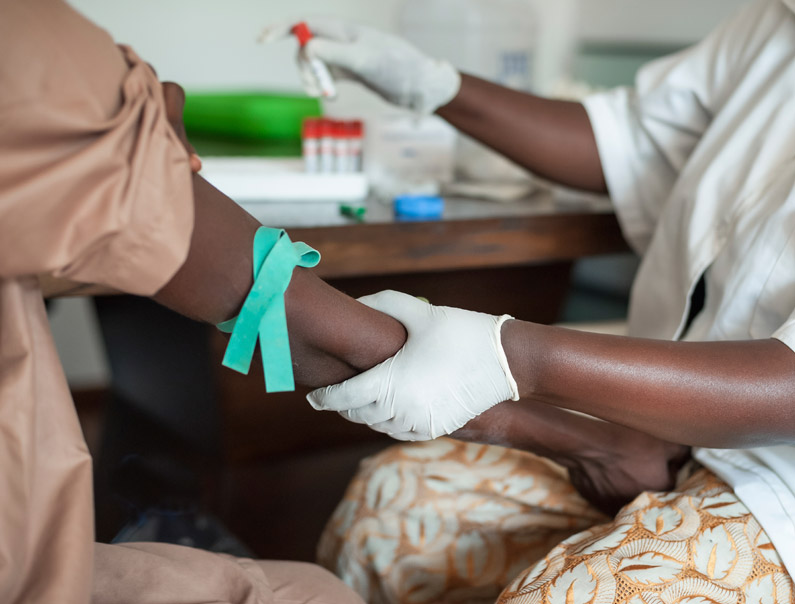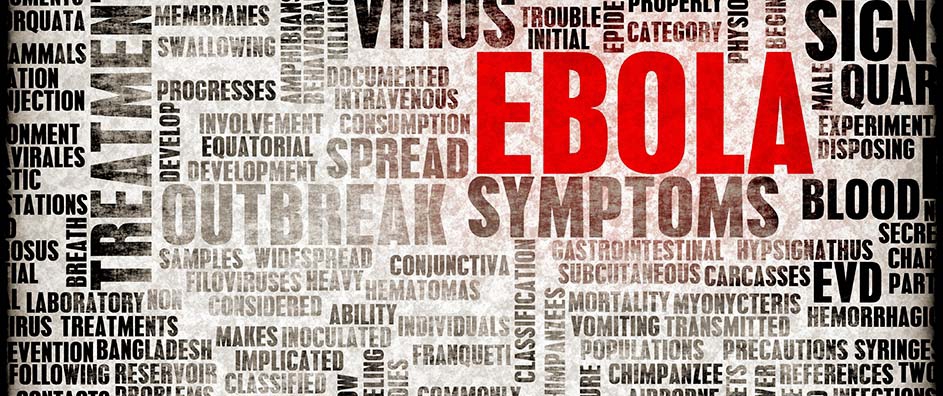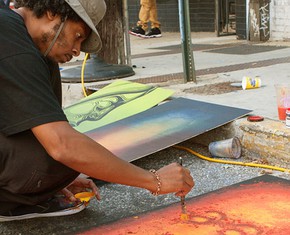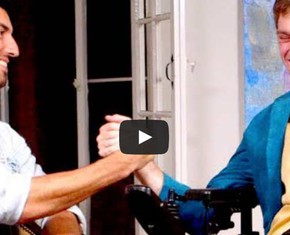The views expressed in our content reflect individual perspectives and do not represent the authoritative views of the Baha'i Faith.
During the autumn of 2014, the Ebola virus continued to ravage thousands of people in Africa, and, when a few cases migrated westward, became a daily news headline in the United States. What our nation’s approach to the disease revealed, said Bono, the lead singer of U2, is that our value system needs a shot in the arm.
First, Ebola isn’t “new.” Doctors first identified it as different from other viruses in 1976, when over 400 people died of Ebola in Zaire (Democratic Republic of Congo – DRC) and Sudan (South Sudan.) The next known epidemic happened in 1995 in DRC, when 250 people succumbed to the virus. Smaller outbreaks of the virus in 2000-2001 and 2007 caused other fatalities in Africa. As the outbreaks continued, laboratories in the United States, England, Italy and Russia all studied the Ebola-Reston virus; learned more about it, and began the long process of working on vaccines and cures.
With this history, we know quite a bit about Ebola:
It is contagious – but not as contagious as, for example, the measles.
It’s transmitted through bodily fluids, such as blood, sweat, saliva, feces and urine. It is NOT airborne like the flu. It does NOT infect people based on the color of their skin.
The mortality rate of those infected is pretty directly related to the poverty in which they live. Lack of good nutrition, clean water, and adequate care makes Ebola very deadly in villages in West Africa–and not as deadly in the industrialized West.
 One more statistic provided by Seth Borenstein, Associated Press science writer in an article posted on October 23: “More Americans have married Kim Kardashian–three–than contracted Ebola in the U.S. The two Dallas nurses who came down with Ebola were infected while treating a Liberian man, who became infected in West Africa.”
One more statistic provided by Seth Borenstein, Associated Press science writer in an article posted on October 23: “More Americans have married Kim Kardashian–three–than contracted Ebola in the U.S. The two Dallas nurses who came down with Ebola were infected while treating a Liberian man, who became infected in West Africa.”
“Still,” he reports, “schools have been closed, people shunned and members of Congress have demanded travel bans and other dramatic action….”
Why all this fear, when the risk to Americans has proven itself so extremely low? And what can the Baha’i writings teach us about Ebola in America?
The Baha’i teachings say we’re all personally responsible for investigating the truth. While some nonsense exists on the Internet about Ebola, it doesn’t take long to find trustworthy sources of information about the virus, and learn how you can avoid it. The Centers for Disease Control site has many helpful facts: www.cdc.gov A few very simple tests can diagnose Ebola–and put your mind at rest if you’re virus-free.
Baha’u’llah taught that there is only one race–the human race. Sadly, some people in Africa believed that white people purposefully infected black people with Ebola because of racism, while in America people said that President Obama had allowed people with Ebola into the country in retribution for slavery. Well, a virus will make a person sick regardless of skin color. Any superstitious, unfounded accusations of racism are just plain wrong, and have nothing to do with the facts.
Baha’u’llah calls on people to be generous in prosperity. Experts know that the most effective way to stop the Ebola epidemic is to treat it at its source in West Africa. The World Health Organization estimates that a billion dollars would build the care facilities and develop the drugs needed to halt the virus. That seems like a lot of money–until you read that on November 28 (“Black Friday”) U.S. shoppers spent $9.1 billion in their efforts to save money on material things. Clearly we have the financial resources—we only lack the compassion.
This quotation from Baha’u’llah encompasses the entire issue: “The earth is but one country and mankind its citizens.” If we think of the people in West Africa as part of our human family, then we’ll do everything we can to stop the disease and the suffering it causes, just like we would for family members we love here at home.
In our modern world, diseases can spread with the speed of an intercontinental airliner, and science has its limits. To address the festering issues of fear, prejudice and greed we need to look to the spiritual antidotes of our religious faith.
















Comments
Sign in or create an account
Continue with Googleor